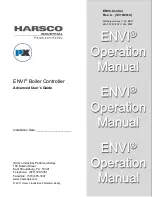GETTING STARTED
MultiConnect
®
Dragonfly
TM
MTQ-MNA1-B01 Device Guide
25
Processor
To reset the processor, the minimum recommended reset pulse is 200
μ
s. The maximum reset pulse is less
than 1 second.
Refer to STM32F411 documentation for additional reset options available within the on-board
microcontroller.
- Reset is controlled via PC13 on the on-board microcontroller.
- Refer to 3G_ONOFF Signal for instructions on managing radio module reset.
Sleep Mode
Control radio sleep mode with the GPIO pin PC13 (3G_ONOFF) on the onboard processor. See also
3G_ONOFF
Signal
.
Setting PC13 to Low and holding it low turns the radio off, causing it to draw minimal power.
Setting PC13 to High resets and wakes up the device.
Refer to +CFUN in the
AT Command Reference Guide
for other sleep options.
Note:
If using +CFUN commands, then reset the device via the PC13 (3G_ONOFF) toggle low to high to bring the
radio out of +CFUN sleep mode.
Developing with an MTQ in Mbed
Build applications written for the MTQ are built on top of the Arm
®
Mbed
TM
library and can include the MTSAS
library for easy cellular radio use.
The MTQ ships with AT pass-through firmware, which directly connects the cellular radio to the external serial port
on the MTUDK2-ST-CELL developer board. The firmware:
Runs at 115200 baud by default to match with the cellular radio’s default baud rate.
Prints debug messages from the debug port at 115200 baud.
Allows users to increase or decrease the application’s baud rate by entering a plus (+) or minus (-) character
on the USB debug port. Issuing a plus or minus character on the USB debug port changes the external serial
port speed as well as the speed of the link between the processor and the radio. The speed of the USB
debug port on reset is always 115200 to match the radio’s default regardless of the baud rate used at the
time of reset.
Uses RTS/CTS flow control on the serial connection to the radio and on the external serial connection.
Enables RTS/CTS flow control on terminal emulators used with the AT pass-through firmware.
MTSCellularInterface Library
The MTSCellularInterface software library on mbed provides a consistent interface to the cellular radio on each
MTQ module. The interface includes:
TCP sockets.
UDP sockets.
HTTP/HTTPS requests.
SMS messaging.
GPS if supported by the radio.
Access to common radio information like signal strength, registration, etc.


















